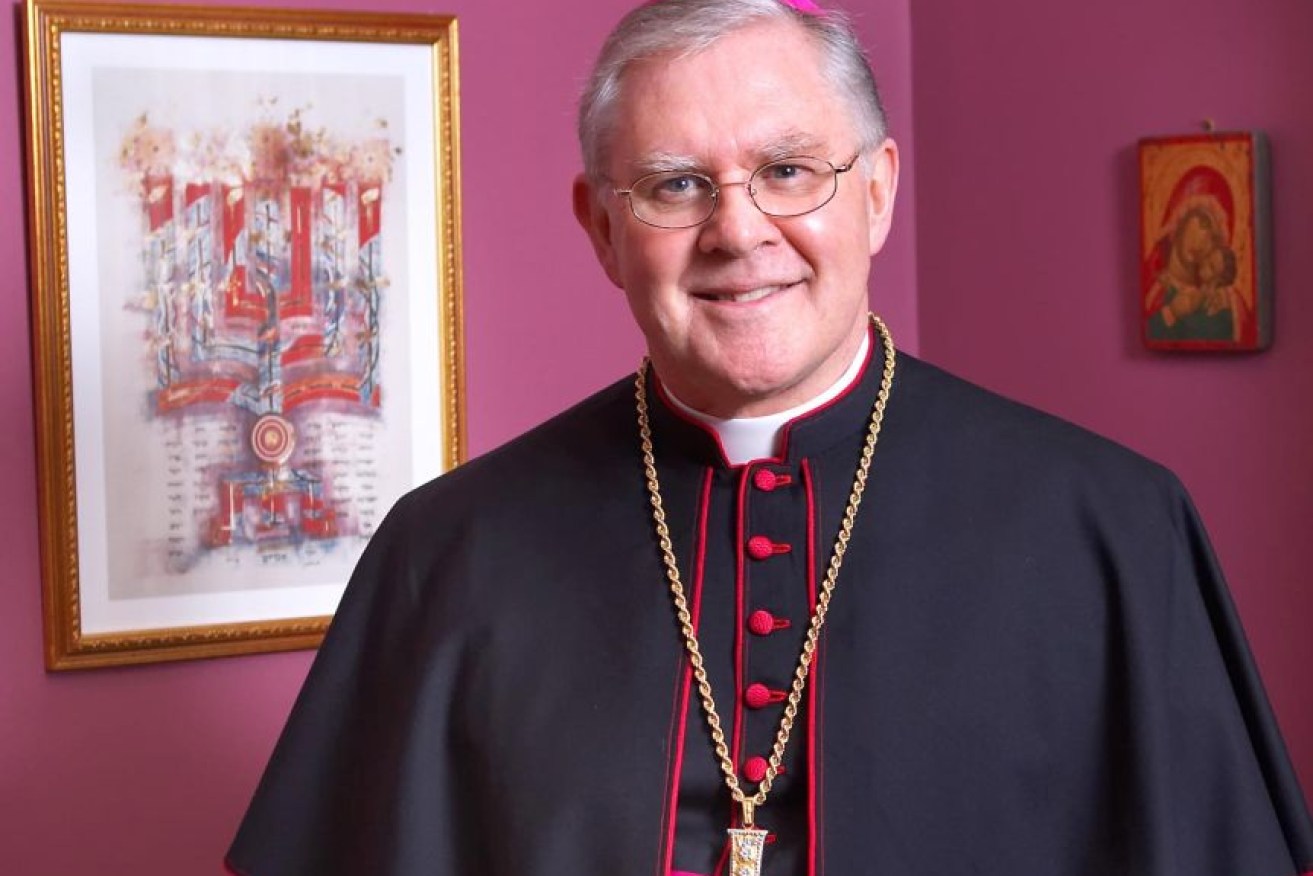Preaching from an empty cathedral and learning to Zoom on the run
Each day this month, we will publish Tales of 2020, the stories of Queenslanders enduring an extraordinary year. Today, Catholic Archbishop of Brisbane Mark Coleridge tells how the pandemic has changed humanity, the church and his ability to conduct Zoom meetings.

Catholic Archbishop Mark Coleridge says he's become adept at Zoom meetings through the pandemic (Pic, ABC)
I was in Rome for meetings in late February. The first outbreaks of COVID-19 were hitting the headlines in the north of Italy, but in Rome things were still quiet.
The crowds were smaller and the streets quieter, but bars and restaurants were still doing a brisk trade. I also popped down to the south of Italy to visit a friend and there was no sign of crisis down there.
When I returned to Australia in early March, people asked if I was going to self-isolate. A bit reluctantly I agreed to a three-day quarantine, little realizing what was about to erupt not in the north of Italy but right here is Brisbane.
It came like a tsunami out of nowhere, and suddenly we were required to close the churches and head into lockdown. The crisis was nothing like Italy, but it was grave enough.
Since then, my life has been livestreaming worship from an empty cathedral, endless Zoom meetings and spending more time at home than I have ever done in my life.
Each of these has meant learning new skills. Mass in an empty cathedral was unsettling at first, but slowly I have got used to the live streaming, though the absence of face-to-face contact in church remains weird.
At first I found Zoom meetings exhausting, especially if I did three or four on the trot. I am not quite sure why a Zoom meeting is more draining than face-to-face, but it is.
Recently I had to chair a week-long Zoom meeting of forty bishops: now that was exhausting. But, I would have to say, it went better than we feared because by then even the bishops were getting the hang of it.
Working at home creates a more secluded, even contemplative style of work without the bustle and formality of the office.
I am still busy, but it is a different kind of busyness; and life itself has a different kind of rhythm, which is not all bad for a man of my age.
Some of the new skills we have been learning through the crisis we will take with us beyond the crisis. They will become part of “the new normal”. In that sense, the pandemic, though a dreadful thing, has had its positive aspects.
Will life ever be the same again? I doubt it – not in the world, not in the Church.
Even though the pandemic seemed to come out of nowhere, we can see now that its roots go deep and raise serious questions about the way we live and the way the world is organized.
We can also see how fragile we are, when even the most seemingly unshakeable institutions have been shaken to the core.
A certain kind of ignorance and complacency are no longer options. Certainly, a lifestyle based on limitless consumption looks to be a thing of the past.
Through all the drama we have been forced to focus on the things that really matter. Human lives matter: people matter, all of them but especially the most vulnerable; selfless service of others matters; a new kind of solidarity matters.
The economy matters of course, but only if it serves people rather than demand that people serve it. If people have to serve the economy, especially if it is structured unjustly, then the economy becomes a form of idolatry; and that will lead to disaster again.
So, beyond all the new skills we have had to learn, I find myself hoping that what emerges on the other side is a simpler and more human world where solidarity and service are understood, and lived, in new ways.
On that note, I leave you with some lines from the French poet Paul Celan:
We stand by the window embracing and
people look up from the street.
It is time they knew!
It is time the stone made an effort to flower; time unrest had a beating heart.
It is time it were time.
It is time.
✠ Mark Coleridge is the seventh Catholic Archbishop of Brisbane and has served four decades as a priest, Bishop and Archbishop. He is the current president of the Australian Catholic Bishop’s Conference.
This article was first published in Stories from the Heart, an e-book edited by Dr Johanna Skinner and editor Jane Connolly, and is republished with their permission.








